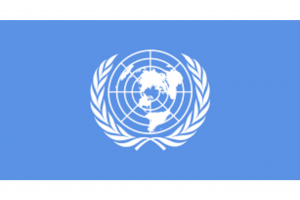“Sexual violence against women and girls is rooted in centuries of male domination. Let us not forget that the gender inequalities that fuel rape culture are essentially a question of power imbalances.”
— UN Secretary-General António Guterres
Violence against women and girls is one of the most widespread, persistent and devastating human rights violations. The theme for the 2019 International Day for the Elimination of Violence Against Women is ‘Orange the World: Generation Equality Stands Against Rape,’ and for the next two years, the UN Secretary-General’s UNiTE to End Violence against Women campaign will focus on the issue of rape. As in previous years, the International Day will mark the launch of the 16 days of activism that will conclude on 10 December, which is International Human Rights Day.
Why we must eliminate violence against women
Violence against women and girls (VAWG) is one of the most widespread, persistent and devastating human rights violations in our world today remains largely unreported due to the impunity, silence, stigma and shame surrounding it.
In general terms, it manifests itself in physical, sexual and psychological forms, encompassing:
- intimate partner violence (battering, psychological abuse, marital rape, femicide);
- sexual violence and harassment (rape, forced sexual acts, unwanted sexual advances, child sexual abuse, forced marriage, street harassment, stalking, cyber- harassment);
- human trafficking (slavery, sexual exploitation);
- female genital mutilation; and
- child marriage.
To further clarify, the Declaration on the Elimination of Violence Against Women issued by the UN General Assembly in 1993, defines violence against women as “any act of gender-based violence that results in, or is likely to result in, physical, sexual or psychological harm or suffering to women, including threats of such acts, coercion or arbitrary deprivation of liberty, whether occurring in public or in private life.”
The adverse psychological, sexual and reproductive health consequences of VAWG affect women at all stages of their life. For example, early-set educational disadvantages not only represent the primary obstacle to universal schooling and the right to education for girls; down the line they are also to blame for restricting access to higher education and even translate into limited opportunities for women in the labour market.
While gender-based violence can happen to anyone, anywhere, some women and girls are particularly vulnerable – for instance, young girls and older women, women who identify as lesbian, bisexual, transgender or intersex, migrants and refugees, indigenous women and ethnic minorities, or women and girls living with HIV and disabilities, and those living through humanitarian crises.
Violence against women continues to be an obstacle to achieving equality, development, peace as well as to the fulfillment of women and girls’ human rights. All in all, the promise of the Sustainable Development Goals (SDGs) – to leave no one behind – cannot be fulfilled without putting an end to violence against women and girls.
Orange the World: Generation Equality Stands Against Rape
Efforts to prevent and end violence against women at the global, regional and national levels shows that there is widespread impunity on sexual violence and rape.
Starting on this year’s International Day for the Elimination of Violence Against Women (25 November), and for the next two years, the UN Secretary-General’s UNiTE to End Violence against Women campaign, a multi-year effort aimed at preventing and eliminating violence against women and girls, will focus on the issue of rape as a specific form of harm committed against women and girls in times of peace or war.
[Source: United Nations]

